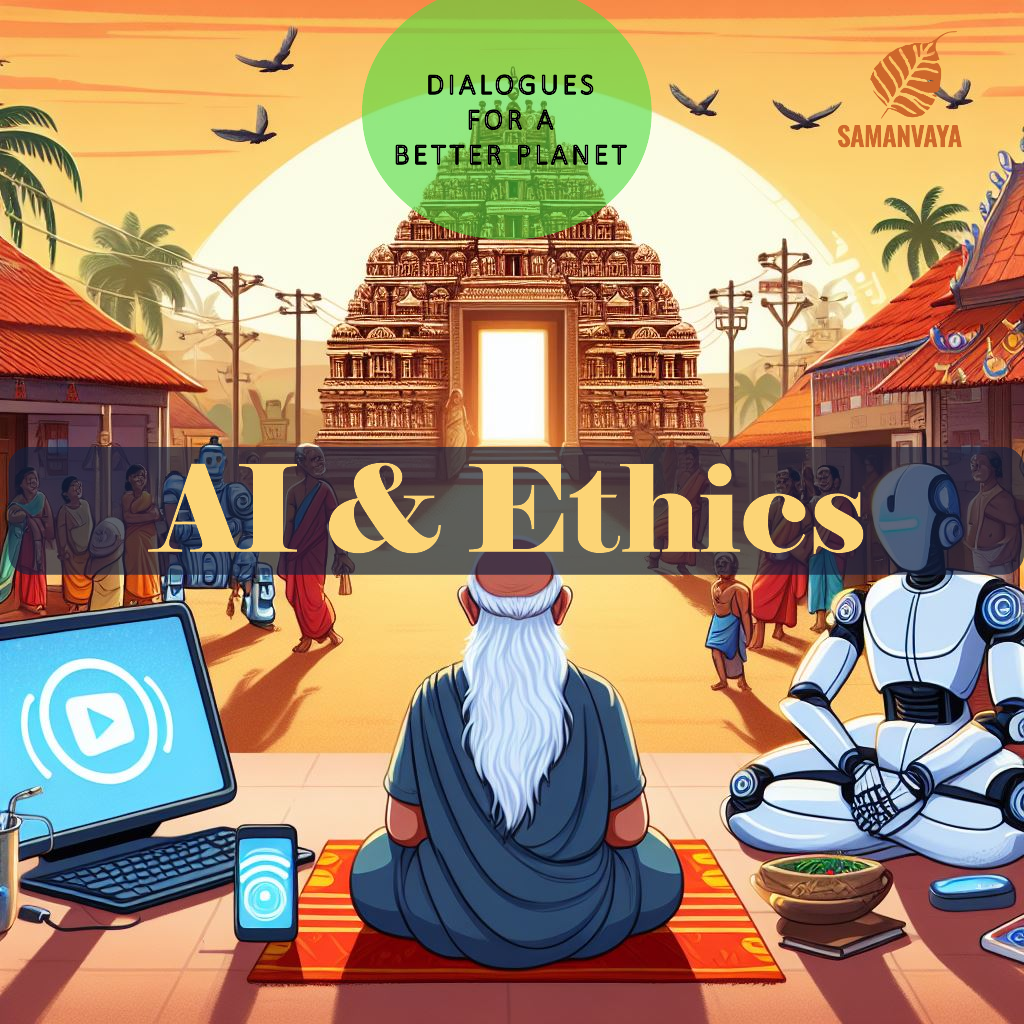
Artificial Intelligence (AI) or Machine Learning algorithm is increasingly envisaged to play a major role to do various typical human decision making and problem solving methods utilizing vast amounts of human fed data, rapid processing speed, high speed internet and connectivity, devices that can handle such demands, humans that need them and data processing and self-learning machine algorithms.
The novelty of machines doing what humans and nature does, has been the pursuit of modern science and technology for well over a century now. The reduction of drudgery and the improvement of efficiency and productivity has borne enormous economic benefits. Though the large machine based production also fueled human greed and hastened the depletion of natural resources beyond the point of replenishment.
Far away economies have prospered by being linked through the internet based technology, where the one society leads a life that needs the other to provide cheap services over long distances. This has rendered localized skills being available redundant on all life supporting aspect of human society. Matching the life incompetency and economic affordability of some with the economic and opportunity needs of the other society has been the biggest contribution of this technology. The few entrepreneurs / corporates that control the matching process obviously benefit the most in this phase. Every new communication medium change necessitated a large scale re-learning on the part of the service provider and tools upgrade on the part of the service recipient. Control of a communication medium led to the control of knowledge flow and today there are very few knowledge processed globally that are not dependent on information technology.
When the technology developed engulfed more resources, consume more human and nature produced electrical power, got humans to input large scale validated and categorized data, it started to mimicking the human output in a limited manner. That is where we are with the AI today.
The potential of this mimicry machine is being seen as useful for many who are in a hurry to achieve various goals - from mindless document creation, effortless art work creation, more profitable business management, efficient mobility management, prediction and analytics to support any endeavor, etc., In its capacity to process data from diverse human exchanges and utilize that processing to shape further interactions everywhere, this machine can out perform and fast learn than any machine that we know until now. This obviously has applications in the industries where such a high speed learning is required. Their greed to stay in power is the investment of AI research today. Availability of cheap labour in some parts of the world to do minimal skilled work of tutoring the machine has been exploited by these corporates. The global political powers that has been manipulated to less prioritize environmental impact of extractive processes to manufacture high speed devices of connectivity has further hastened the process of development of the capabilities of this technology.
Ethical debates around AI research and development have centered on the following broad areas --
- Philosophical - the definition of conscience as many machine developers claim that the machine currently is capable of the same
- Social Justice: Source side - those that are highlighting the plight of all those who are involved in the data gathering process to train the machine and may eventually be replaced by it
- Social Justice: Target side - those that point out the cultural, power and world view imbalance in the inputs that the machine is being fed with
- Economical - lack of benefit sharing as both equity and economical benefit of the development and profit sharing
- Creative - the replacement of human creativity with the often over sensitive and extra careful generic creative designed output from the machine that is both restrictive in its expression and creative vocabulary
There are many more I am sure.
Samanvaya has had a history of engaging with the questions of technology intervention in society. Since our inception, this has been a thematic area in which we have worked consistently.
Currently, we are initiating a series of Dialogues on Ethics& AI as a structured 8-part programme through which we attempt to address the several dimensions of ethical debate surrounding the development, deployment and benefitting from AI technology. We invite several stake holders, from industries, research institutions, academics, thinkers, designers, activists, and policy makers to join us in these programme.
 The schedule is provided here and the registration of the programme can be done from this link
The schedule is provided here and the registration of the programme can be done from this link
In the built up to this dialogue, we had invited several friends to share their idea of AI and the Ethical questions surrounding the same through short views. Several of these are currently available. Here are the links for the same --
Add new comment